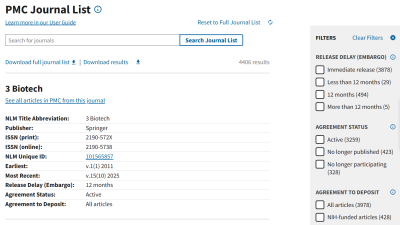This webinar is a great opportunity to learn more about the new NIH Data Management & Sharing Policy and its impact on grant applicants. Join us for a conversation that will touch on policy expectations, insights in how to prepare a data management plan, and advice for sharing data responsibly and safely.
A panel of MSK staff from various departments will be sharing their recent experiences with time for attendees to participate in an interactive Q&A discussion.

Date: Thursday, March 23, 2023
Time: 12:00 PM to 1:30 PM, EST
Location – Zoom Webinar – Register Now
Panelist Bios:
Roy Cambria, BS, CCRP, CIP, Director, Human Research Protection Program (HRPP), MSK
Roy has been at Memorial Sloan Kettering since 2005 and has held several positions in clinical research throughout his almost 18 year career with the institution. He began MSK as the Institutional Review Board/Privacy Board (IRB/PB) Coordinator until 2008 when he transitioned to project, and program based positions in the former Office of Clinical Research. He returned to the IRB/PB administration space in 2016 as the Human Research Protections Program Director. The MSK Human Research Protection Program Office is part of the Protocol Activation, Review and HRPP unit in Clinical Research Compliance Administration. As HRPP Director, Roy oversees the daily operations of the HRPP office and MSK’s 3 IRB/PBs. He is responsible for promoting the welfare and rights of human research participants, facilitation of excellence in human subjects research, and ensure timely and high quality review of research. In addition, he and the HRPP office are responsible for ensuring full compliance with Institutional, AAHRPP(Association for the Accreditation of Human Research Protection Programs), State and Federal regulations, requirements and guidance regarding human subjects’ protection. Roy has served on the MSK IRB/PB since 2008 and is a member of the Society of Clinical Research Associates (SOCRA) and a Certified IRB Professional (CIP).
Anthony Dellureficio, MLS, MSc, Associate Librarian, Data Management, MSK
Anthony joined the MSK Library in 2019 to help launch a new Research Data Management program to support researchers by developing, implementing, and integrating resources that focus on data management plan creation, data discovery, and data as a component of the publication process. Prior to joining MSK, Anthony led The New School Library and Archives systems and technology team for about ten years. He has previously worked as the digital archivist at Cold Spring Harbor Laboratory, rare medical text cataloger at the Johns Hopkins Institute of the History of Medicine, and archivist at the Johns Hopkins Medical archives. His academic area of interest is in the history of classical genetics.
Kelly McConnell, PhD, Associate Attending Psychologist & co-Director of the Psycho-oncology of Aging and Cancer research laboratory in the Department of Psychiatry & Behavioral Sciences, MSK
Dr. Kelly McConnell’s research examines the nature and predictors of distress in older adult patients with cancer and their caregivers and care received at the end-of-life. She also examines the efficacy and implementation of interventions to reduce distress and increase rates of advance care planning in patients and caregivers. She has received NIH (K23, R21) and foundation (American Cancer Society, American Federation for Aging Research, RRF Foundation for Aging) grant funding for this research.
Joseph Olechnowicz, MA, Senior Editor, Department of Pediatrics, MSK
Joe Olechnowicz assists investigators with successfully communicating their scientific goals and asking for federal and philanthropic support for achieving them. He joined the Department of Pediatrics in 2008 initially contributing to protocol/project development activities (including protocol review activities of the department as well as the development of the FDA approved drug naxitamab) while also assisting with manuscript submissions and grant application and reporting.
Joe received his B.S. in biology from John Carroll University and his M.A. from Case Western Reserve University (CWRU) in biomedical ethics while also working in the lab of Dr. Sanford Markowitz on the genetics of familial colon cancer syndromes. He went on to work with Dr. Eric Kodish at the Cleveland Clinic analyzing the use of proxy consent and assent in clinical research involving children (Olechnowicz et al. Pediatrics, 2002). He then attempted to study the philosophy underpinning consent and intentional/free action (along with some other stuff) at Florida State University. He currently is employed using the skills he acquired during his academic activities, namely, writing concisely and precisely and making difficult scientific/conceptual explanations understandable.

